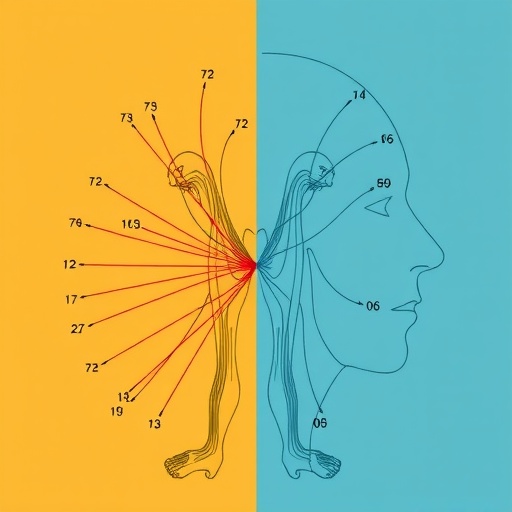PROTECT YOUR DNA WITH QUANTUM TECHNOLOGY
Orgo-Life the new way to the future Advertising by AdpathwayIn recent years, food insecurity has emerged as a significant social and health issue, particularly among vulnerable populations. The link between food insecurity and health outcomes has been widely studied, with a strong emphasis on its impact on older adults. A notable investigation into this pressing topic is presented in a new study examining the associations between food insecurity and geriatric syndromes among economically deprived community-dwelling Chinese older adults. This research, conducted by Kwan, Ho, Chau, and their colleagues, underscores the necessity to explore food security as a critical determinant of health among the aging population.
Food insecurity refers to the lack of reliable access to a sufficient quantity of affordable and nutritious food. For older adults, this can lead to a plethora of health-related issues, including increased risk for chronic diseases, mental health challenges, and geriatric syndromes. The study conducted by Kwan and the team aims to illuminate the complex relationship between food insecurity and these syndromes, thereby providing a comprehensive understanding of how nutritional deficiencies can exacerbate health complications in older individuals.
Geriatric syndromes encompass a variety of multifactorial health conditions commonly affecting older adults, such as frailty, falls, cognitive decline, polypharmacy, and incontinence. These syndromes typically arise from the interaction of multiple health and psychosocial factors rather than resulting from a single disease process. The implications of food insecurity on these syndromes are particularly concerning. Older adults who experience food insecurity are at a heightened risk of malnutrition, which can serve as a mediating factor in the development and exacerbation of these health issues.
The study conducted in economically deprived areas of China provides vital insight into how nutritional risks associated with food insecurity can perform a mediating role in geriatric health outcomes. The researchers analyzed data from community-dwelling older adults, employing validated measures to assess food security, malnutrition risk, and the presence of geriatric syndromes. This methodological rigor allowed the researchers to draw credible connections between nutritional status and overall health, offering a glimpse into the harsh realities faced by many older adults living in poverty-stricken conditions.
Through detailed statistical analysis, the researchers determined that food insecurity is not merely an isolated issue but a crucial factor that interacts with broader health determinants. They found that among older adults in economically deprived communities, those experiencing food insecurity reported significantly higher instances of geriatric syndromes. This correlation highlights the urgent need for intervention strategies that encompass not just direct health services, but also efforts to address food security in these vulnerable populations.
The mediating role of malnutrition risk was pivotal in the findings of the study. Malnutrition risk was identified as a significant mechanism through which food insecurity translates into adverse health outcomes. Elements such as inadequate dietary intake, limited access to essential nutrients, and the psychological stress of food scarcity contribute to worsening health conditions among older adults. By understanding malnutrition as a mediator, the study advocates for targeted nutritional interventions to mitigate risks associated with food insecurity.
Identifying the prevalence and patterns of food insecurity within specific communities allows for the development of tailored interventions that address these unique challenges. Moreover, the study suggests future research directions encompassing longitudinal studies to better grasp the long-term impacts of food insecurity on aging populations. Such research could potentially inform policymakers and stakeholders on effective strategies to enhance food security, thereby improving overall health outcomes for older adults.
Public health initiatives must embrace a multifaceted approach to tackle the intersection of food insecurity and geriatric health. By promoting greater awareness about the significance of food security, communities can rally together to support initiatives that provide access to nutritious food for older adults in need. These initiatives may include community gardens, food banks, meal delivery programs, or subsidized grocery options that prioritize nutrient-rich foods.
As the world’s population continues to age, addressing food insecurity becomes increasingly crucial for fostering healthier aging. Efforts to ensure that older adults have consistent access to affordable and nutritious food can demonstrate substantial returns in health savings and improved quality of life. The insights gleaned from Kwan and colleagues’ research underscore the critical intersection of food access, nutrition, and geriatric health, calling for an urgent response from healthcare providers, researchers, and policymakers alike.
Furthermore, educating older adults about nutritional needs and available resources can empower them to advocate for their own health. Through community workshops, resources for meal planning, and cooking demonstrations, older adults can regain a sense of autonomy in meal preparation. These initiatives can also enhance social engagement, minimizing feelings of isolation commonly experienced within this demographic.
In conclusion, the study by Kwan et al. serves as a clarion call to address the intertwined challenges of food insecurity and geriatric health. The rigorous examination of these issues highlights the necessity for a multidisciplinary approach to address the complex web of factors contributing to poor health outcomes among older adults. Only through dedicated research, policy interventions, and local community initiatives can society hope to alleviate the burdens of food insecurity and promote healthier aging.
The exploration of this important topic is essential for informing future directions in geriatric healthcare. As the findings share light on the hidden struggles many older adults face, it is paramount for communities, researchers, and healthcare practitioners to work collaboratively in ensuring that no older individual has to endure the double burden of food insecurity and declining health.
In summary, Kwan and colleagues’ investigation into food insecurity and its association with geriatric syndromes reveals the critical need for concerted efforts in addressing nutritional risks among older adults. By emphasizing the mediating role of malnutrition risk, this research opens avenues for innovative strategies aimed at preventing adverse health outcomes and promoting the well-being of older adults in economically disadvantaged settings.
Subject of Research: Food insecurity and its associations with geriatric syndromes among economically deprived community-dwelling Chinese older adults.
Article Title: Associations of food insecurity with geriatric syndromes in the economically deprived community-dwelling Chinese older adults: the mediating role of malnutrition risk.
Article References:
Kwan, K., Ho, M., Chau, P. et al. Associations of food insecurity with geriatric syndromes in the economically deprived community-dwelling Chinese older adults: the mediating role of malnutrition risk. Eur Geriatr Med (2025). https://doi.org/10.1007/s41999-025-01337-2
Image Credits: AI Generated
DOI: https://doi.org/10.1007/s41999-025-01337-2
Keywords: Food insecurity, geriatric syndromes, malnutrition risk, older adults, health outcomes, community health, aging, nutritional deficiencies.
Tags: associations between food insecurity and geriatric syndromeschronic diseases in elderly individualscommunity-dwelling elderly and food accessfood insecurity in older adultsfrailty and falls in older adultshealth complications related to food insecuritymalnutrition and health outcomes in seniorsmental health challenges among seniorsnutritional deficiencies in the aging populationpolypharmacy issues in geriatric carestudying health determinants in aging populationsunderstanding malnutrition in seniors


 5 hours ago
5
5 hours ago
5





















 English (US) ·
English (US) ·  French (CA) ·
French (CA) ·